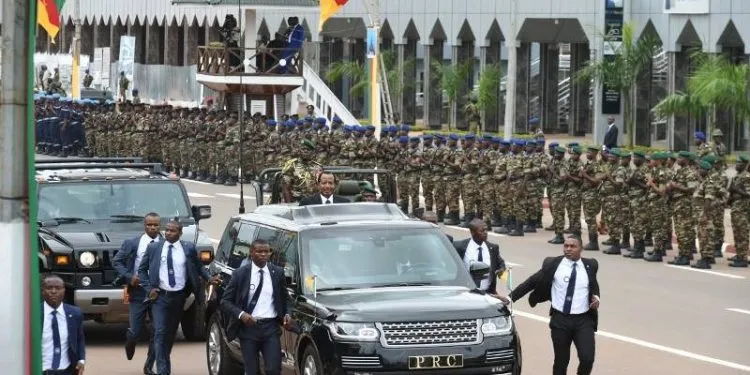By David Atangana
Friday May 20 , 2022 marks 50 years since a Unitary State was instituted in Cameroon. Five decades down the line, the day has been surrounded in controversies that have remain unending.
Some have said, the day is as controversial as the country’s history. Records hold that the day originated from a referendum organized in 1972 by former President Ahamdou Ahidjo, leading to a change in the governance system from a federal to unitary state.
The Unitary State marked the end of the two states federation instituted in 1961. This was when the English-speaking Southern Cameroons and French-speaking La Republique du Cameroun came together to form one country.
The institution of a Unitary system came with a mantra embedded in national unity and cohesion irrespective of historical past.The Ahidjo and Biya regimes have held the so much trumpeted national unity and cohesion so dear. They two regimes by the estimation of many have yoked any debate that puts the form of state to question.
50 years down the line, most Cameroonians whose opinions MMI has sampled believe that National Unity is an illusion. This, they say is given that its impact is not felt and the country is more than divided than it would have been under the federal arrangement.
The Anglophone-Francophone divide, unfair sharing of national cake, discrimination, ethnic divide amongst others, our respondents say, account for the limping unity though there still appear a semblance of unity in national life
“Unity when viewed from its most basic definition as state of oneness,constituting an undivided entity,is an elusive concept within the Cameroonian context,” said, Dr Reymond Budi, a history varsity lecturer told MMI.
To him,unity can not be talked of when many people and communities feel excluded in a country that is supposed to be one.
Going by Dr Budi: “Ethnicities continue to manifest particularistic tendencies which have resulted in some cases into bloody confrontations. The huge generational gap has rendered the youths incapable of contributing, in a spirit of love for country, to the development of the nation”.
He added that: “Women continue to feel left out from national discourse. Imbalance regional development has made some regions almost victims instead of beneficiaries of the national cake”
The academic further added that the partial inclusion of Anglophones who constitute the foundation of national unity makes the whole show a perception.
Chila Nyamk, another Cameroonian whose opinion we sought on the same topic said unity is a pretext used by the Francophone majority to trample on the English-speaking minority, in violation of the reunification terms.
“You see, the idea of unity is completely at odds with that of independence by the 1961 document. In essence, National Unity is a phrase completely alien to the spirit of reunification. It is facade designed by the Francophone East to trample on the right of Anglophone West,” Nyamke argued.
“I think in Cameroon national unity is a nightmare because, the French-dominated Yaounde régime focuses all it’s activities and even development, plus employment to only French Cameroonians and the Anglophones are left with nothing or no where to go,” said another Cameroonian citizen who opted not to be named.
Don Tarla, a taxi driver on his part said” unity in this country means total surrender of Anglophones to the Francophones.The only unity you can talk of is that which brought Southern Cameroons and La Republique du Cameroun together.I don’t see any other”.
The armed separatists conflict in the English-speaking North West and South west regions is among other reasons many also said, has made some Cameroonians to think that national unity has serious cracks that must be looked into.
“We cannot talk of Unity when the North West and South West regions that united with French Cameroon are going apart.There is an armed conflict there since 2016”,Said Njeba Nchanji , Executive President of Coalition Center For Human Rights and Humanitarian Assistance, CCHRHA.
Njeba said “for Cameroon to celebrate it Unity Day without problem, government should solve the anglophone crisis, through inclusive dialogue”.
Despite the cracks noticed around the concept of unity in Cameroon,there are Cameroonians who believe that there are points of convergence that give some semblance of unity.
Dr Budi on this score said: “However, viewed differently, religious tolerance, the freedom by Cameroonians to settle anywhere in the country, the sense of nationhood and the spread of bilingualism are some residues of oneness in the unconsolidated unity in Cameroon”.



